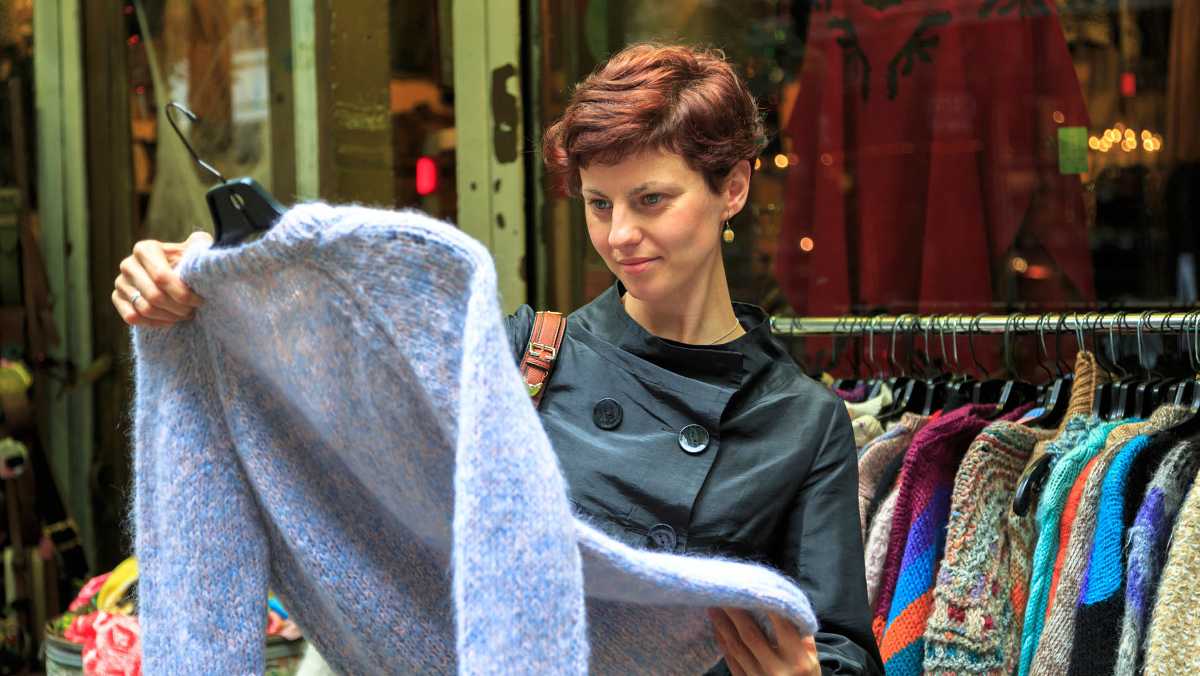Tips for starting a second-hand shop

- Henk Herkink
- How to
- 12 September 2021
- Edited 11 March 2025
- 2 min
- Starting
The number of second-hand shops is growing, both online and offline. Vintage clothes and retro furniture are particularly popular. Do you see opportunities in this market and would you like to start a second-hand store? Find out what you need to know to start your business in used goods.
What do you need to do and arrange when starting a business?
Find out with the 'Personal to-do list' on Business.gov.nl. Answer the questions and see the steps that are important in your situation.
If you want to start a second-hand store, these topics are important:
Growing market
Conduct market research to find out about supply and demand, competitors' prices, your target audience, and suppliers. What products do you want to sell and where? Is there a demand for them? Which other companies also sell those products and how do they go about it? List them in your business plan.
Buying and selling
Before you can start selling, you need to make sure you have a stock of second-hand items. You can buy from:
- persons
- second-hand shops
- used goods dealers
Selling on consignment
You can also choose not to buy products yourself but sell them for the supplier. The items then remain the property of the supplier. This is called selling on . If you manage to sell the product, you get a part of the selling price. Make clear agreements about:
- How the supplier will deliver the products to you.
- For how long the products will remain in your shop.
- What you do with the products you do not sell.
- What you will do if a product is damaged in the shop.
Shop or online
You can sell products from a shop or via social media, your own webshop, or an online platform. Decide which of these methods best suits your potential customers.
Shop
When selling from a shop premises, you have to deal with the environment plan and the rules of the municipality. Before signing the lease, find out what you need to arrange. This way, you avoid having to pay rent while the shop is not allowed to open.
Online shop
Do you want to sell things online via an online shop? Then you must deal with laws and regulations. Such as the right to reflection time after purchase and the right to return products. The Authority for Consumers and (ACM) website explains what you have to comply with and what you have to state on your website.
Online platform
You can also sell used items via an online platform, such as Marktplaats, Bol.com, Vinted, or Zalando. This way, you start with low costs because you do not need shop premises and sometimes no storage space either. You also do not have to pay a developer to build a webshop for you.
Selling via a platform costs money. You pay a fixed amount when you sign up and the platform gets a share of what you earn. Each platform has its own rules. Find out about conditions and service standards. Think about keeping a minimum stock and being available by telephone for customers.
If you sell through an online platform, you also have rights. For example, a platform cannot simply delete your account.
Dealer register
Do you buy theft-sensitive used goods, such as gold, precious stones, or watches? Then keep a digital dealer . This is required by law and designed to prevent the handling of stolen goods. You must keep a record in this register of what you buy, on what date, for what price, and what the seller's personal details are. You report this to your municipality, which then carries out checks.
Margin scheme
Margin (in Dutch) are goods you buy without VAT. You may apply the margin if you meet these (in Dutch). You then charge VAT on your profit margin instead of on the selling price.
For the margin scheme, you must keep special purchase and sales records. This can be done in two ways: the globalisation method or the individual method. In both cases, administrative obligations apply. For example, you must use a purchase declaration if you purchase goods from one supplier for an amount higher than €500. The margin scheme applies in all EU countries. Read more about the margin scheme on .
General information for starters
As a starting business, you will also be dealing with:
- choosing a business name
- choosing a legal
- setting your hourly rate
- arranging tax matters
- drawing up general terms and conditions
- keeping records
- insurances
- and, in some cases: being a part-time entrepreneur

